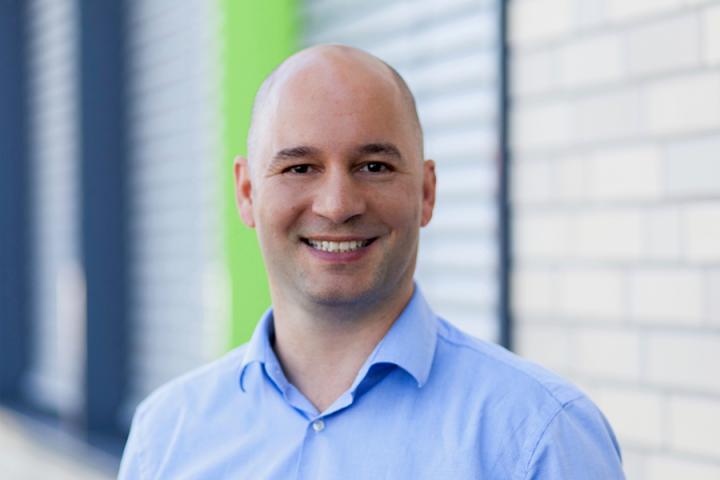University of Magdeburg receives 14 million euros for world-class neuroscientific research

Credit: Sarah Rinke
Which neurobiological principles prevent us as humans from fully utilizing our own cognitive abilities and what are the performance limits of our brains? And how can limitations that occur in old age or with Alzheimer’s disease be diminished? To research these key questions, the German Research Foundation (DFG) has just awarded Otto von Guericke University Magdeburg 14 million euros for its Collaborative Research Center CRC 1436 “Neural Resources of Cognition”.
From 1 January 2021, over 40 scientists at the Magdeburg campus and beyond will examine, through a total of 22 individual projects, the cognitive potential of the human brain, its variability across individuals, and the neurobiological processes that prevent us from fully exploiting it. The aim is to develop interventions that can be used to improve cognitive performance in healthy individuals as well as those who harbour “hidden” disease processes, and to mobilize the brain’s reserve mechanisms.
“The performance of our memory, our ability to learn and our attentiveness are dictated by the architectural principles of the brain,” explains Professor Dr. med. Emrah Düzel, spokesperson for the CRC and head of the Institute of Cognitive Neurology and Dementia Research at the University of Magdeburg. “However, within these parameters there is a large amount of variability and opportunities to improve individual abilities through training. We hope to understand the neurobiological principles that set limits on performance enhancement.”
According to the co-spokesperson of the CRC, Dr. Michael Kreutz, working group leader at the Leibniz Institute for Neurobiology Magdeburg, there is currently no comprehensive theory on the capacity and plasticity limits of the brain. “This is a problem, since important biological and medical concepts such as “reserve” and “resilience” depend on a reliable theory and experimental data.” In turn, this is a requirement for the development of individually tailored prevention and intervention in neurodegenerative diseases.
“This collaborative research center is an amazing success and will provide new impetus for world-class neuroscientific research at the Magdeburg campus,” stresses Professor Dr. Daniela C. Dieterich, Dean of the Faculty of Medicine in Magdeburg. “The mix of scientists from a wide range of disciplines that are using their expertise and motivation to rise to the challenge of this highly relevant topic, holds enormous potential for innovation. The long-term aim is, with the help of state-of-the-art technologies and methods, to quickly make use of the findings in clinical practice and thus improve patient care.”
The interdisciplinary teams at the Magdeburg campus bring together experts in the fields of neuroscience, medicine, biology, pharmacology, physics and psychology. The researchers at Otto von Guericke University Magdeburg, the Center for Neurodegenerative Diseases (DZNE) and the Leibniz Institute for Neurobiology Magdeburg (LIN) are also cooperating with the Freie Universität Berlin, Charitè Universitätsmedizin Berlin and the Universities of Düsseldorf, Heidelberg and Göttingen.
“Our plan is, on the one hand, to understand the nature of neural systems on widely differing scales, and on the other to bring them to the limits of their performance through interventions,” explains neuroscientist, Professor Dr. Emrah Düzel. “In the process, we hope to examine whether the targeted improvement in performance can be used flexibly, in other words, whether or not it is “transferable”, or can even result in other mental capabilities being disrupted.”
According to Professor Düzel, to overcome this challenge, an innovative, unique infrastructure and expertise ranging from molecular mechanisms to the psychological and medical fundamentals of higher mental functions is required. “Through the funding of the University as a center for the neurosciences, the extramural institutions, the DZNE and LIN, and not least thanks to the expertise of its scientists, the University of Magdeburg is in a unique position to bring this ambitious project to fruition. Magdeburg is one of the few locations worldwide, where this combination can succeed.” Magdeburg is, among other things, a pioneer in the area of ultra-high-field imaging. Equipped with a 7-Tesla MRI system, the site is able to map the innermost architecture of the brain and its plasticity in people with unprecedented resolution. Over and above this, high-resolution microscopy also allows insights into the nanoworld of synapses and a research cyclotron makes it possible to depict molecular processes in the human brain. “Within the collaborative research center, we will be able to produce a portfolio of technologies that make it possible to visualize memory traces in the brain.”
Saxony-Anhalt’s Minister of Science, Professor Dr. Armin Willingmann, explained: I am delighted by Otto von Guericke University’s tremendous success in receiving around 14 million euros from the German Research Foundation (DFG) for the “Neural Resources of Cognition” collaborative research center. The acquisition of this special research funding is a major honor for university medicine in Magdeburg and proof of its excellence. At the same time, the funding facilitates further ambitious world-class research and thus strengthens the location as a whole.
###
Media Contact
Dr. med. Emrah Düzel
[email protected]




